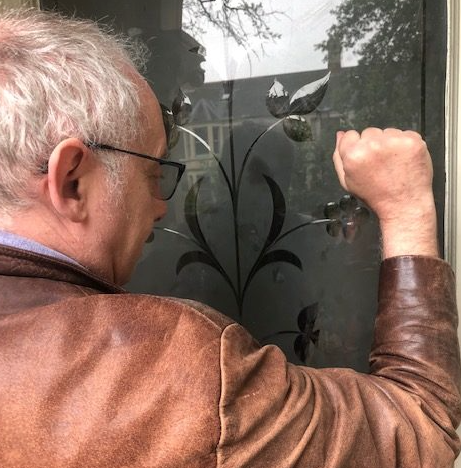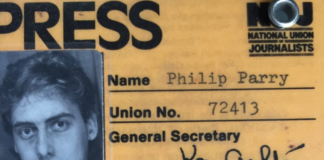- Jobs for the boys and girls - 21st January 2026
- Huwge mistake with public money… - 20th January 2026
- Green with envy… - 19th January 2026

The real meaning behind words has always been central for our Editor, Welshman Phil Parry during 23 years at The BBC and 41 years in journalism, with this now stressed by use on continental Europe of the word ‘remigration’, which actually means sending immigrants back.
It has always seemed important to me to unpack ‘officialese’, so that you can explain to people what it really means.
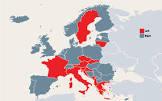
Today, for example, in right-wing governments and parties across continental Europe (and the world) in speeches and policy documents, we see use of the word ‘remigration’..
I am not saying that ‘remigration’ is always spoken by the people in charge – it can equally be employed by their supporters.
We have, for instance, Robert Fico, the Eurosceptic firebrand in Slovakia, Viktor Orban in Hungary, Alexsandar Vucic in Serbia, Georgia Meloni in Italy, and now Herbert Kickl in Austria.
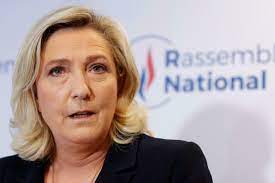
Some or all of these people find support from others.
They include Marine le Pen in France, Mattias Bãckström Johansson, the Sweden Democrats party secretary, Geert Wilders of the far-right Party for Freedom (PVV) in the Netherlands, as well as the nationalist Andrej Babis who seems likely to take power in the Czech Republic next year.

In the 1960s and 70s when the National Front (NF) were in the ascendancy in the UK the term in vogue was ‘send them (immigrants) back’.
Now it is ‘remigration’.
Both, effectively, mean the same thing, but the latter has been adopted by right-wingers because it seems cuddlier.

 However don’t be fooled: this policy means either uprooting families who are in the country quite legally, or turning people away at the border, because they are perceived to be ‘different’.
However don’t be fooled: this policy means either uprooting families who are in the country quite legally, or turning people away at the border, because they are perceived to be ‘different’.
Another misused word (or term) which you hear a lot is ‘witch-hunt’. Donald Trump (who is backed by some or all of these figures), as well as many of his supporters, have (of course) used it a lot, and it is likely to be wheeled out in abundance before the US Presidential election next month.

For example, Mr Trump was found to have defamed E Jean Carroll (although the civil trial rejected her claim that she was raped during their encounter), and he must pay the former Elle magazine advice columnist $5 million (£4 million) in damages.
Yet, as he is wont to do, he lashed out on his ‘Truth Social’ site, calling the outcome “a continuation of the greatest witch hunt of all time” and a “disgrace”.
Another occasion came after the bi-partisan House of Representatives investigation into the riot attempting to overturn the results of the 2020 presidential election, in which five people died (some say 10), when it was revealed that Mr Trump engaged in a “multi-part conspiracy”.
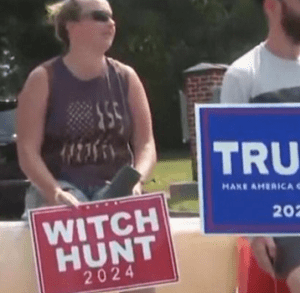
He attacked the results of their 18-month long inquiry, by saying on his social media platform: “The highly partisan Unselect Committee Report purposely fails to mention the failure of Pelosi to heed my recommendation for troops to be used in DC, show the “Peacefully and Patrioticly” words I used, or study the reason for the protest, Election Fraud. WITCH HUNT!”.
Use of this term, however, may raise eye brows in the context of what happened. The January 6 committee report into the rampage at the Capitol building, was based on interviews with more than 1,000 witnesses, it followed 10 hearings and resulted in millions of pages of documents.
The politicians who wrote it, concluded that the evidence “has led to an overriding and straightforward conclusion: the central cause of January 6th was one man, former President Donald Trump, whom many others followed. None of the events of January 6th would have happened without him”.


But it has not been the only time Mr Trump has wielded this cliché.
A grand jury in New York found two Trump Organization companies guilty of multiple charges of tax fraud, and falsifying business records connected with a 15-year scheme to defraud authorities by failing to report and pay taxes on compensation for top executives.
The Trump Corporation and Trump Payroll Corporation were found guilty on all charges they faced.
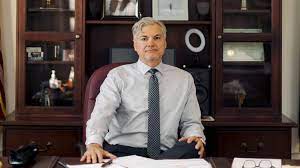
Mr Trump was mentioned repeatedly during the trial by prosecutors about his connection to the benefits doled out to certain executives, including company-funded apartments, car leases and personal expenses. At the end of the case, his company was fined $1.6 million (£1.3 million), and the Trump Corporation was fined $810,000 (£662,976), with Trump Payroll Corporation being fined $800,000 (£654,792). The amount imposed by Judge Juan Manuel Merchan was the maximum allowed by law. He ordered payment in full within 14 days, when he had been asked for 30 days.
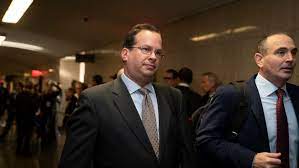
Prosecutor Joshua Steinglass said the fines constituted “a fraction of the revenue” of the Trump Organization and that the project was “far-reaching and brazen”.
During a four-week trial, prosecutors said Mr Trump himself had signed bonus cheques, as well as on the lease for an executive’s luxury Manhattan apartment, and private school tuition for the Chief Financial Officer’s (CFO’s)grandchildren.

But all of this was naturally, (like many of the other controversies to swirl around Mr Trump), part of “a witch-hunt” against him.
He is also under scrutiny by federal and state prosecutors for his handling of classified documents, as well as over the accuracy of the Trump Organization’s business records and financial statements.
Mr Trump is, too, facing a $250 million civil lawsuit from the New York attorney general alleging that he and his adult children were involved in a decade-long fraud.

However it does not look good for Mr Trump, because a judge rejected as “absurd” his attempt to dismiss one of the lawsuits.
It is also ‘absurd’ that his right-wing backers across continental Europe don’t say what they mean when they claim their policy is ‘remigration’.
They don’t want to tell voters they really believe in ‘sending immigrants back’…

The memories of Phil’s decades long award-winning career in journalism (when words were always chosen carefully) as he was gripped by the rare neurological disease Hereditary Spastic Paraplegia (HSP), have been released in a major book ‘A GOOD STORY’. Order it now.
Tomorrow – how during that career, he has witnessed extraordinary industrial upheaval in Wales, and this is now emphasised by the closure of the steelworks at Port Talbot, as well as with accusations today from senior politicians that governments are not doing enough to save jobs.
Wordplay part two comes soon, where Phil looks at a new book which challenges negative notions of the increasing ‘Americanisation’ of the English language.









